
mcp-for-security
MCP for Security: A collection of Model Context Protocol servers for popular security tools like SQLMap, FFUF, NMAP, Masscan and more. Integrate security testing and penetration testing into AI workflows.
Stars: 388
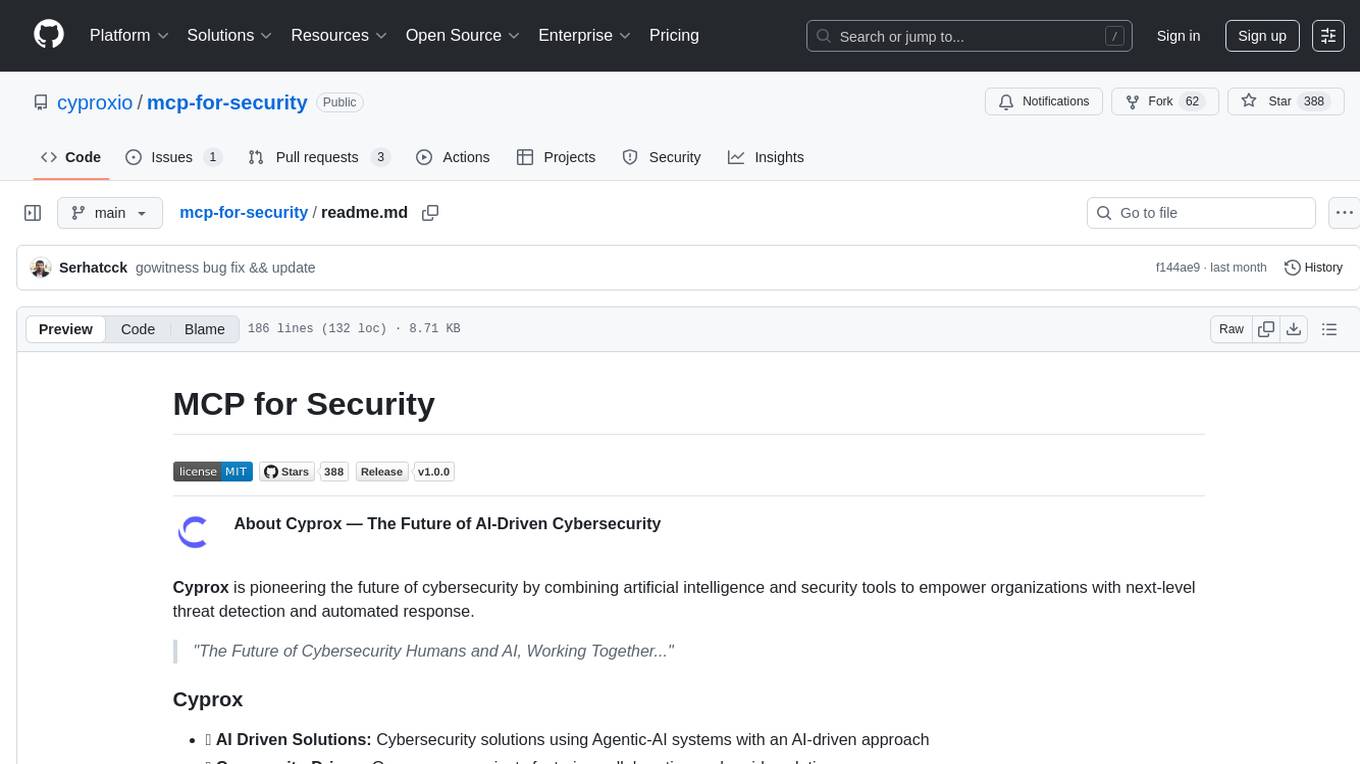
MCP for Security is a repository that contains Model Context Protocol (MCP) server implementations for various security testing tools, making them accessible through a standardized interface. It aims to provide automated threat detection and reduce human latency in cybersecurity by combining artificial intelligence and security tools. Users can access a variety of tools for subdomain enumeration, reconnaissance, vulnerability scanning, web crawling, HTTP security analysis, mobile application security testing, network scanning, SSL/TLS configuration analysis, DNS brute-forcing, HTTP request smuggling detection, SQL injection testing, historical URL retrieval, and WordPress vulnerability scanning. The repository encourages collaboration and rapid evolution through open-source projects.
README:
About Cyprox — The Future of AI-Driven Cybersecurity
Cyprox is pioneering the future of cybersecurity by combining artificial intelligence and security tools to empower organizations with next-level threat detection and automated response.
"The Future of Cybersecurity Humans and AI, Working Together..."
- 🚀 AI Driven Solutions: Cybersecurity solutions using Agentic-AI systems with an AI-driven approach
- 🌐 Community-Driven: Open-source projects fostering collaboration and rapid evolution.
- ⚡ Speed & Precision: Automated threat detection that reduces human latency.
- 🔒 Secure & Transparent: Trustworthy platform built with open standards.
Explore more at https://cyprox.io
MCP for Security repository contains Model Context Protocol (MCP) server implementations for various security testing tools, making them accessible through a standardized interface.
You can use all MCP servers through Docker using the cyprox/mcp-for-security Docker image. It can also be used from any MCP client with Docker support, such as the Cyprox platform. Visit Cyprox for more information.
Since each MCP server may require different dependencies, the start.sh bash script provides a general setup mechanism. Nonetheless, users should always refer to the installation instructions specific to the corresponding MCP server to ensure proper setup.
| Tool | Description | Detailed Documentation |
|---|---|---|
| Amass | Advanced subdomain enumeration and reconnaissance tool | Amass MCP Documentation |
| Alterx | Pattern-based wordlist generator for subdomain discovery | Alterx MCP Documentation |
| Arjun | Run Arjun to discover hidden HTTP parameters | Arjun MCP Documentation |
| Assetfinder | Passive subdomain discovery tool based on Tomnomnom’s Assetfinder | Assetfinder MCP Documentation |
| Cero | Certificate-based subdomain enumeration tool leveraging TLS handshakes to extract domain names from certificate fields like SAN | Cero MCP Documentation |
| Certificate Search (crt.sh) | Subdomain discovery tool using SSL certificate logs | Certificate Search MCP Documentation |
| FFUF | Web content fuzzing tool for discovering hidden files and directories | FFUF MCP Documentation |
| Gowitness | Web screenshot and reconnaissance tool for capturing and analyzing web pages | Gowitness MCP Documentation |
| HTTP Headers Security | Analyzer for HTTP security headers against OWASP standards | HTTP Headers MCP Documentation |
| httpx | Fast and multi-purpose HTTP toolkit for port scanning. | httpx MCP Documentation |
| Katana | Fast and flexible web crawler with JS parsing and hybrid crawling support | Katana MCP Documentation |
| Masscan | Fast port scanner for large-scale network discovery | Masscan MCP Documentation |
| MobSF | Mobile security framework for analyzing mobile applications | MobSF MCP Documentation |
| Nmap | Comprehensive network scanning tool for service and vulnerability discovery | Nmap MCP Documentation |
| Nuclei | Vulnerability scanner using custom templates | Nuclei MCP Documentation |
| Scout Suite | Cloud security auditing tool for assessing configurations across multiple services | Scout Suite MCP Documentation |
| SSLScan | SSL/TLS configuration analyzer for security assessment | SSLScan MCP Documentation |
| shuffledns | High-speed and customizable DNS brute-forcing and resolution tool | shuffledns MCP Documentation |
| Smuggler | Advanced tool for detecting HTTP Request Smuggling vulnerabilities | Smuggler MCP Documentation |
| SQLmap | Advanced SQL injection detection and exploitation tool | SQLmap MCP Documentation |
| Waybackurls | Tool for retrieving historical URLs from the Wayback Machine | Waybackurls MCP Documentation |
| WPScan | WordPress vulnerability scanner for detecting plugins, themes, and configuration issues | WPScan MCP Documentation |
Generates custom wordlists for subdomain discovery using pattern-based permutations.
Advanced reconnaissance tool for subdomain enumeration and intelligence gathering with both passive and active modes.
Discovers hidden HTTP parameters on web applications by scanning URLs, supporting custom wordlists, multiple methods, and adjustable scanning speeds.
Discovers subdomains related to a given domain using passive enumeration techniques. Integrates Tomnomnom’s Assetfinder into the MCP ecosystem for fast and reliable reconnaissance.
Certificate-based subdomain discovery tool that extracts domain names from TLS certificates for reconnaissance and infrastructure mapping.
Discovers subdomains by querying SSL certificate transparency logs without active scanning.
URL-based fuzzing tool with support for all FFUF command line arguments.
Web screenshot and reconnaissance tool that captures screenshots of web pages, analyzes HTTP responses, and provides visual reconnaissance capabilities for security assessments and web application testing.
Analyzes HTTP response headers against OWASP security standards with recommendations.
Performs high-speed probing of discovered subdomains to validate alive hosts, fetch response details, and enrich reconnaissance data without heavy scanning.
Performs fast and customizable web crawling to discover endpoints, scripts, and hidden paths. Supports JavaScript parsing, depth control, and hybrid crawling with headless browsers to enrich reconnaissance and automation workflows.
Fast port scanning tool for target-based port discovery across networks.
Mobile application security testing framework for Android, iOS, and Windows applications.
Full-featured network scanner with detailed service fingerprinting and vulnerability detection.
Template-based vulnerability scanner with an extensive library of security checks.
Performs a multi-service cloud security audit by analyzing cloud configurations and highlighting potential misconfigurations and risks based on best practices.
High-speed DNS brute-forcing and mass subdomain resolution tool to quickly discover valid subdomains using custom resolvers and wordlists.
HTTP Request Smuggling detection tool that identifies desynchronization vulnerabilities between front-end and back-end servers.
SQL injection testing tool with comprehensive capabilities for vulnerability discovery.
SSL/TLS configuration analyzer for identifying weak ciphers and security misconfigurations.
Retrieves historical URLs from the Wayback Machine to discover forgotten endpoints.
WordPress vulnerability scanner for detecting outdated plugins, themes, and common misconfigurations.
- commix
- Corsy
- CrackMapExec
- crlfuzz
- dalfox
- dnsrecon
- feroxbuster
- gau
- getJS
- github-endpoints
- github-subdomains
- gobuster
- gospider
- hakrawler
- kiterunner
- medusa
- naabu
- ParamSpider
- puredns
- s3scanner
- tlsx
- wafw00f
- webscreenshot
- wpscan
- ...
The project uses TypeScript and the Model Context Protocol SDK. To contribute:
- Fork the repository
- Create a feature branch
- Make your changes
- Submit a pull request
For installation instructions for each tool, please refer to the individual documentation linked in the table above.
Each tool has specific parameters and usage instructions. For detailed information, see the documentation for the specific tool you want to use.
For Tasks:
Click tags to check more tools for each tasksFor Jobs:
Alternative AI tools for mcp-for-security
Similar Open Source Tools

mcp-for-security
MCP for Security is a repository that contains Model Context Protocol (MCP) server implementations for various security testing tools, making them accessible through a standardized interface. It aims to provide automated threat detection and reduce human latency in cybersecurity by combining artificial intelligence and security tools. Users can access a variety of tools for subdomain enumeration, reconnaissance, vulnerability scanning, web crawling, HTTP security analysis, mobile application security testing, network scanning, SSL/TLS configuration analysis, DNS brute-forcing, HTTP request smuggling detection, SQL injection testing, historical URL retrieval, and WordPress vulnerability scanning. The repository encourages collaboration and rapid evolution through open-source projects.

WeKnora
WeKnora is a document understanding and semantic retrieval framework based on large language models (LLM), designed specifically for scenarios with complex structures and heterogeneous content. The framework adopts a modular architecture, integrating multimodal preprocessing, semantic vector indexing, intelligent recall, and large model generation reasoning to build an efficient and controllable document question-answering process. The core retrieval process is based on the RAG (Retrieval-Augmented Generation) mechanism, combining context-relevant segments with language models to achieve higher-quality semantic answers. It supports various document formats, intelligent inference, flexible extension, efficient retrieval, ease of use, and security and control. Suitable for enterprise knowledge management, scientific literature analysis, product technical support, legal compliance review, and medical knowledge assistance.
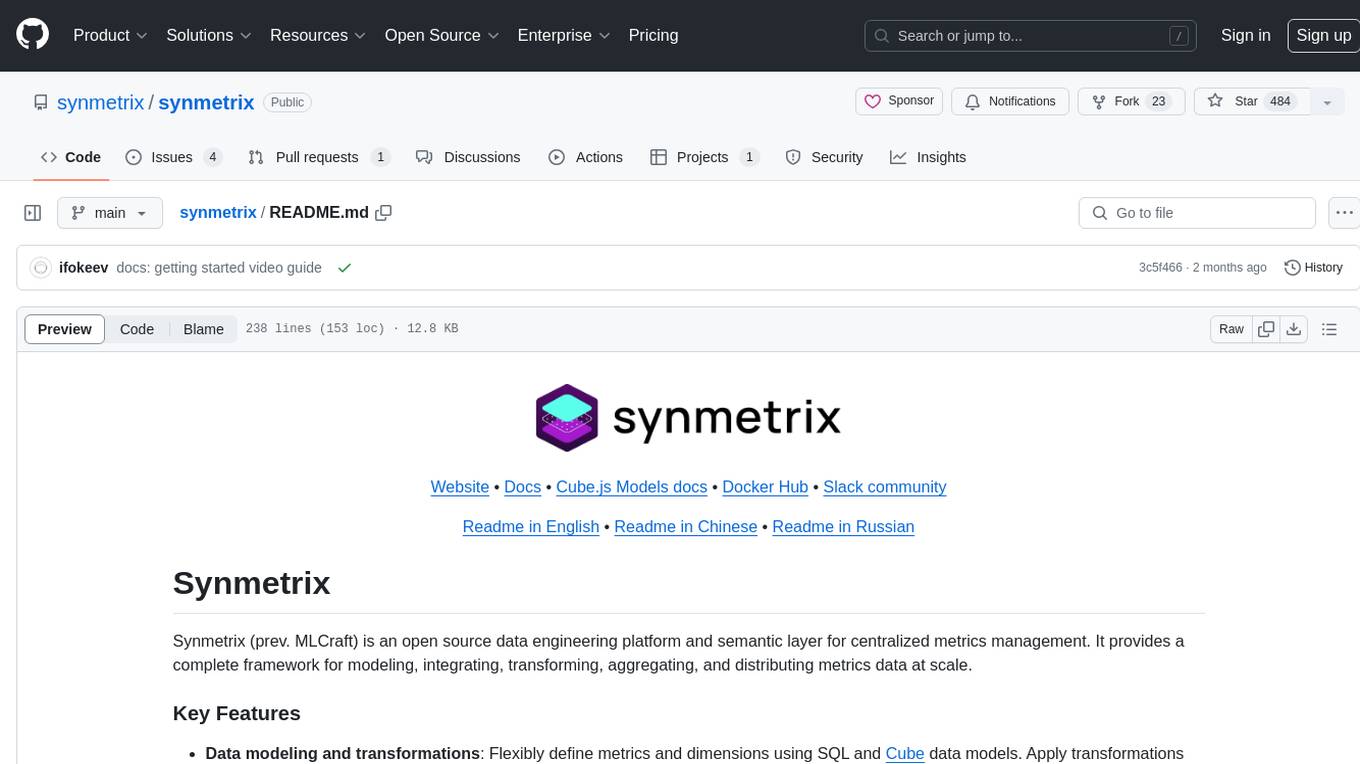
synmetrix
Synmetrix is an open source data engineering platform and semantic layer for centralized metrics management. It provides a complete framework for modeling, integrating, transforming, aggregating, and distributing metrics data at scale. Key features include data modeling and transformations, semantic layer for unified data model, scheduled reports and alerts, versioning, role-based access control, data exploration, caching, and collaboration on metrics modeling. Synmetrix leverages Cube.js to consolidate metrics from various sources and distribute them downstream via a SQL API. Use cases include data democratization, business intelligence and reporting, embedded analytics, and enhancing accuracy in data handling and queries. The tool speeds up data-driven workflows from metrics definition to consumption by combining data engineering best practices with self-service analytics capabilities.
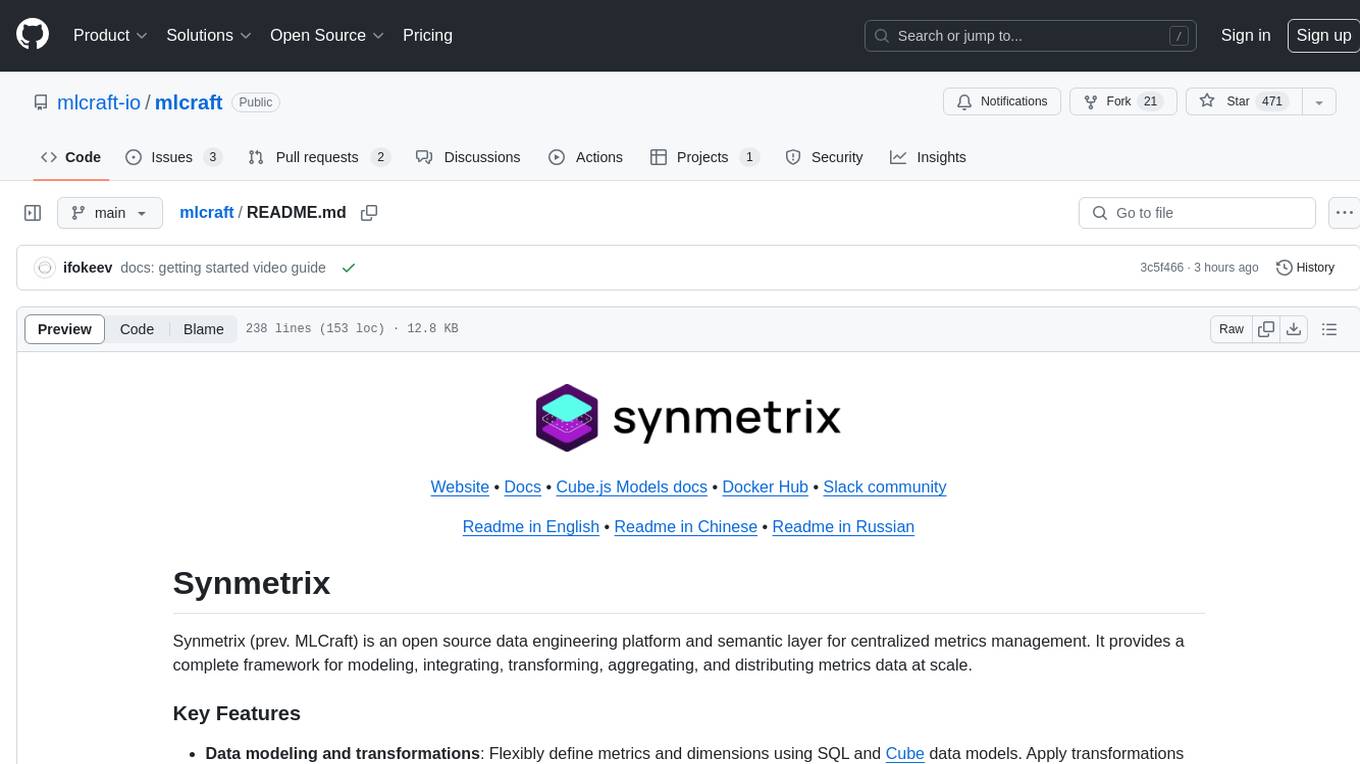
mlcraft
Synmetrix (prev. MLCraft) is an open source data engineering platform and semantic layer for centralized metrics management. It provides a complete framework for modeling, integrating, transforming, aggregating, and distributing metrics data at scale. Key features include data modeling and transformations, semantic layer for unified data model, scheduled reports and alerts, versioning, role-based access control, data exploration, caching, and collaboration on metrics modeling. Synmetrix leverages Cube (Cube.js) for flexible data models that consolidate metrics from various sources, enabling downstream distribution via a SQL API for integration into BI tools, reporting, dashboards, and data science. Use cases include data democratization, business intelligence, embedded analytics, and enhancing accuracy in data handling and queries. The tool speeds up data-driven workflows from metrics definition to consumption by combining data engineering best practices with self-service analytics capabilities.
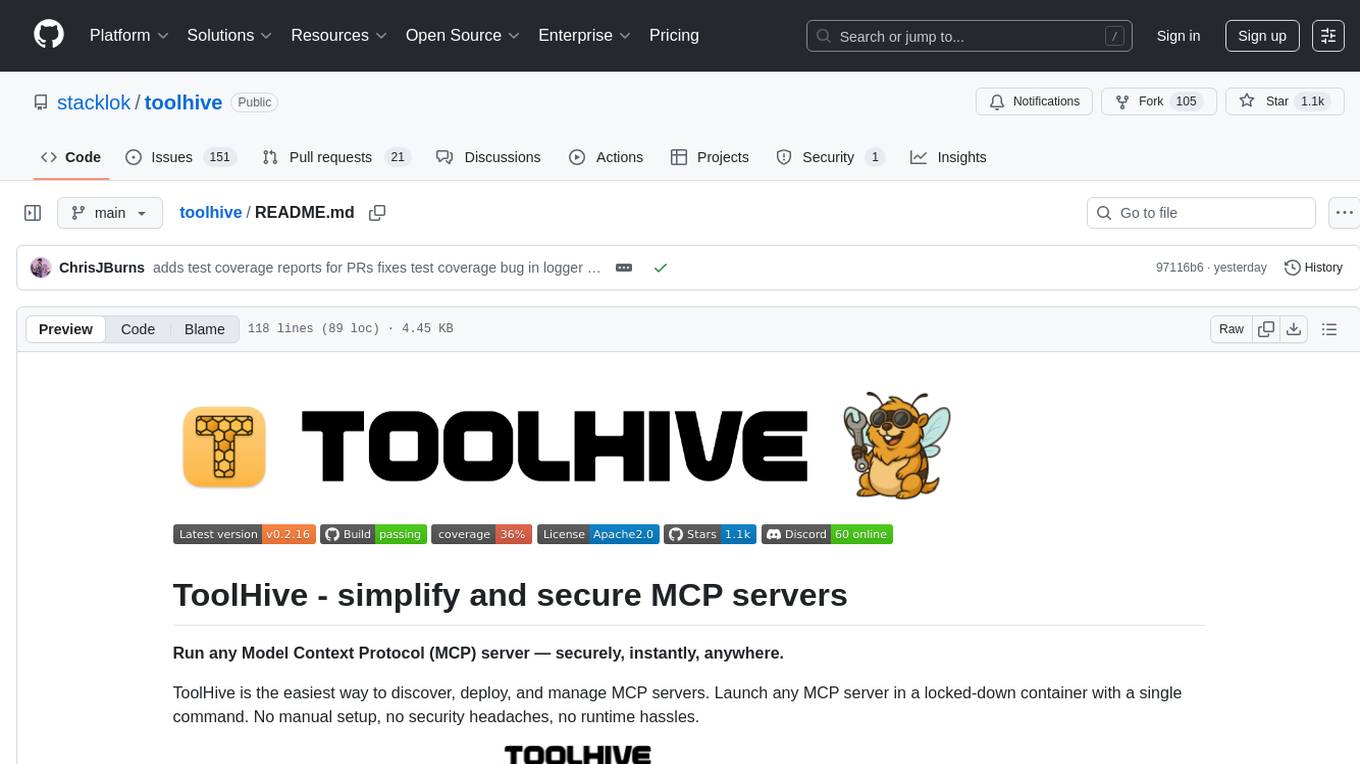
toolhive
ToolHive is a tool designed to simplify and secure Model Context Protocol (MCP) servers. It allows users to easily discover, deploy, and manage MCP servers by launching them in isolated containers with minimal setup and security concerns. The tool offers instant deployment, secure default settings, compatibility with Docker and Kubernetes, seamless integration with popular clients, and availability as a GUI desktop app, CLI, and Kubernetes Operator.
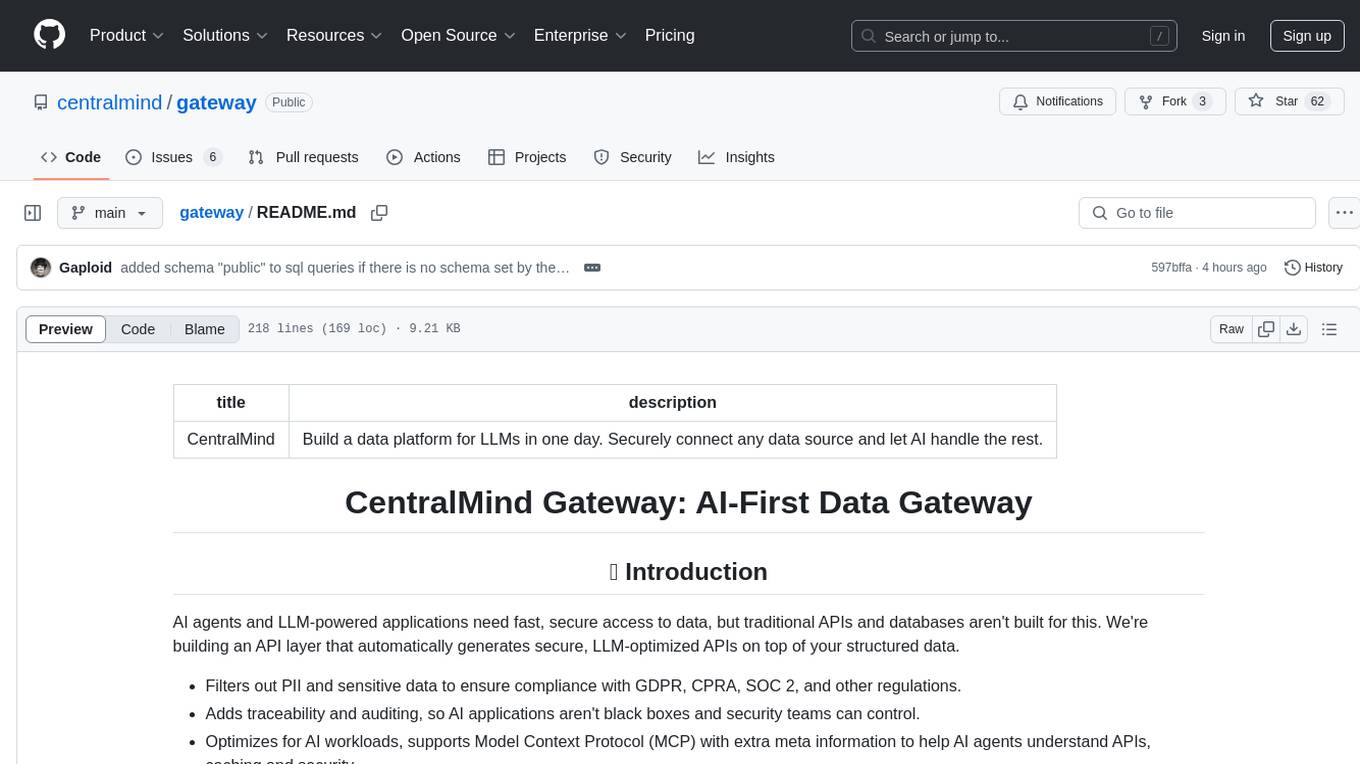
gateway
CentralMind Gateway is an AI-first data gateway that securely connects any data source and automatically generates secure, LLM-optimized APIs. It filters out sensitive data, adds traceability, and optimizes for AI workloads. Suitable for companies deploying AI agents for customer support and analytics.
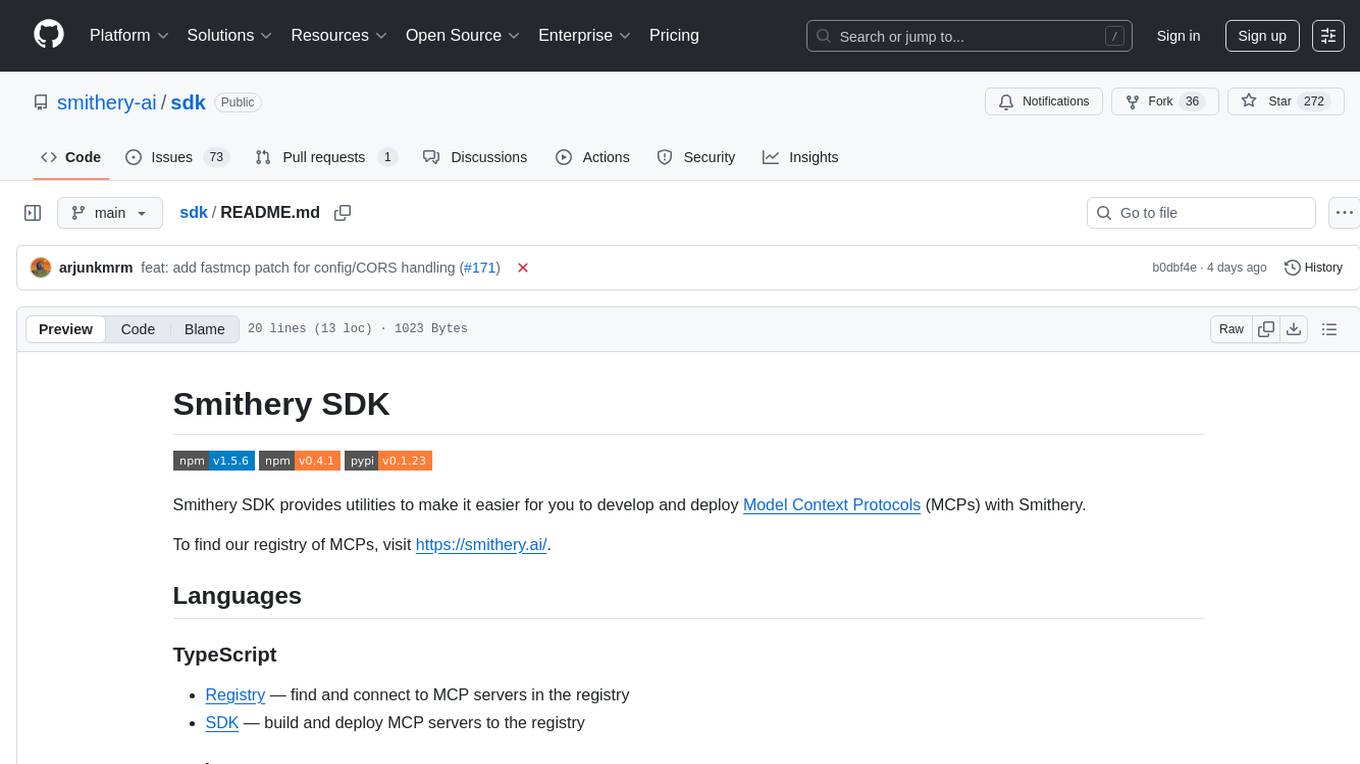
sdk
Smithery SDK is a tool that provides utilities to simplify the development and deployment of Model Context Protocols (MCPs) with Smithery. It offers functionalities for finding and connecting to MCP servers in the registry, building and deploying MCP servers, and creating fast MCP servers with Smithery session configuration support. Additionally, it includes a ready-to-use MCP server template. For more information and access to the MCP registry, visit https://smithery.ai/.
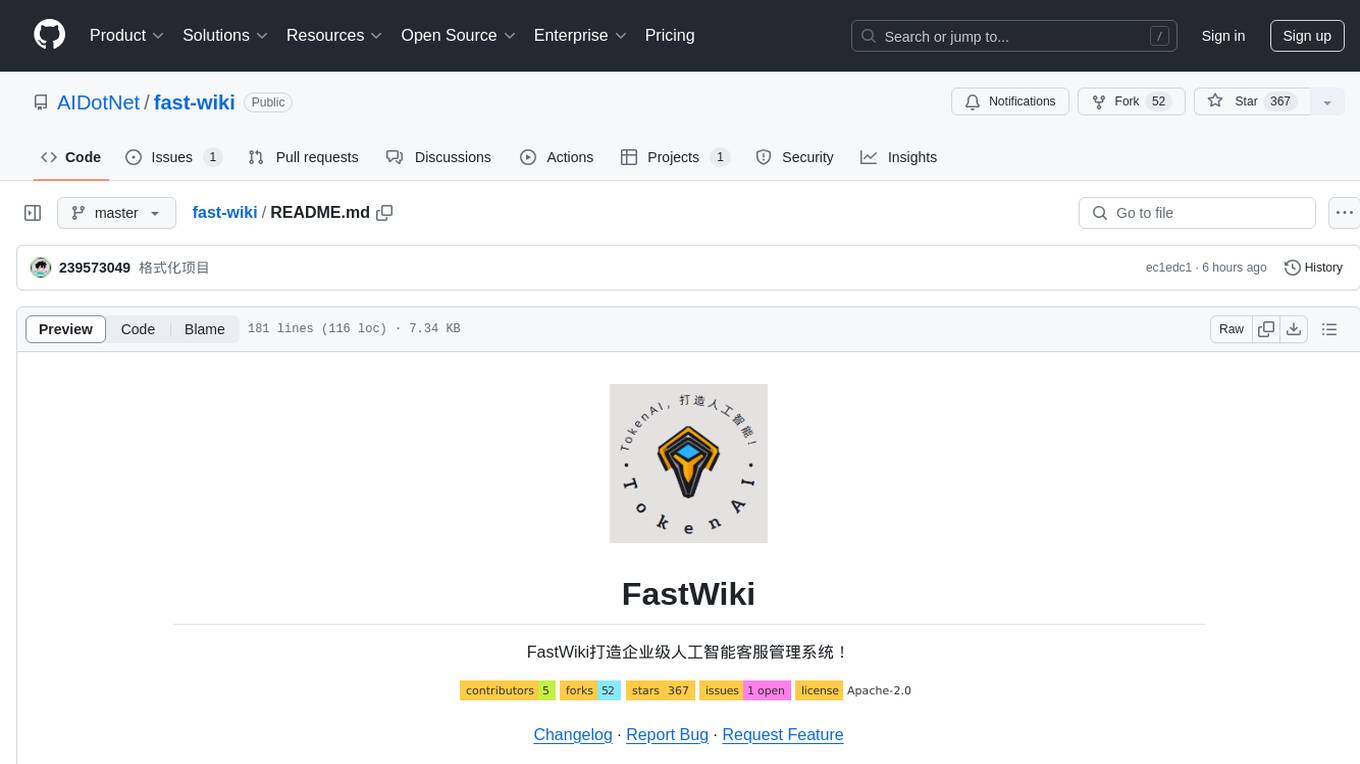
fast-wiki
FastWiki is an enterprise-level artificial intelligence customer service management system. It is a high-performance knowledge base system designed for large-scale information retrieval and intelligent search. Leveraging Microsoft's Semantic Kernel for deep learning and natural language processing, combined with .NET 8 and React framework, it provides an efficient, user-friendly, and scalable intelligent vector search platform. The system aims to offer an intelligent search solution that can understand and process complex queries, assisting users in quickly and accurately obtaining the needed information.
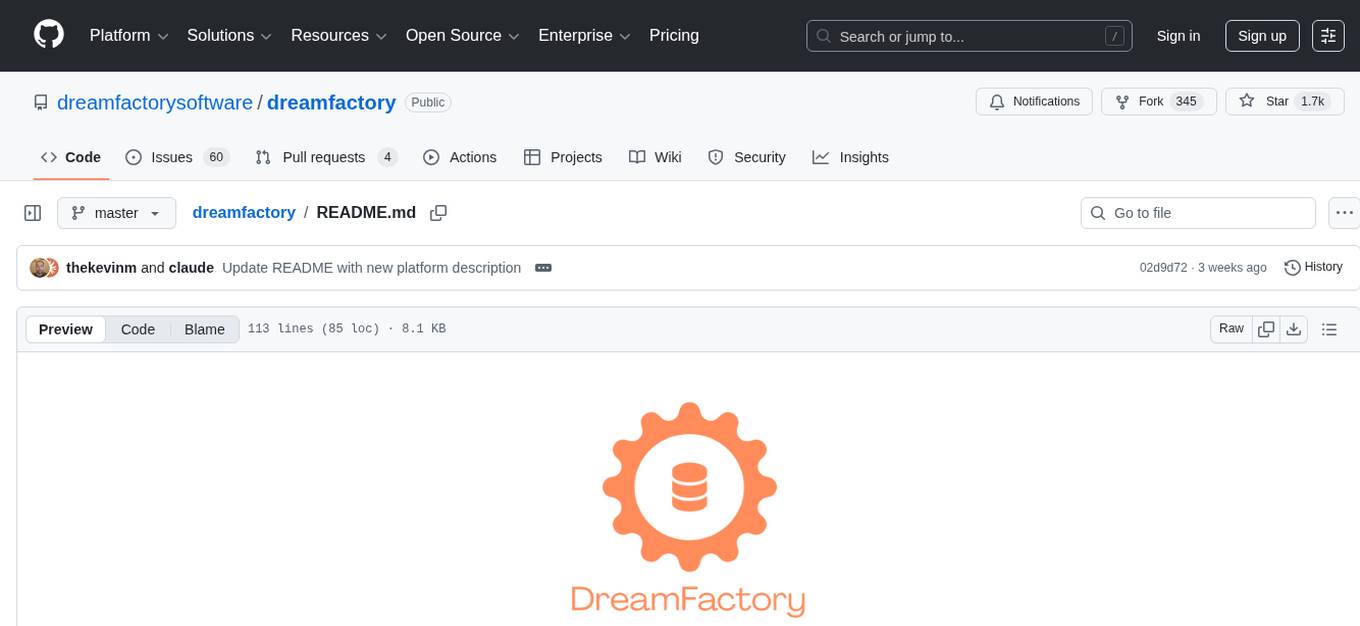
dreamfactory
DreamFactory is a self-hosted platform that provides governed API access to any data source for enterprise apps and local LLMs. It is a secure enterprise data access platform built on top of the Laravel framework, offering role-based access control, identity passthrough, and customization of API behavior using PHP, Python, and NodeJS scripting languages. DreamFactory allows users to generate powerful APIs for SQL and NoSQL databases, files, email, and push notifications in seconds, while ensuring security with features like user management, SSO authentication, OAuth, and Active Directory integration.
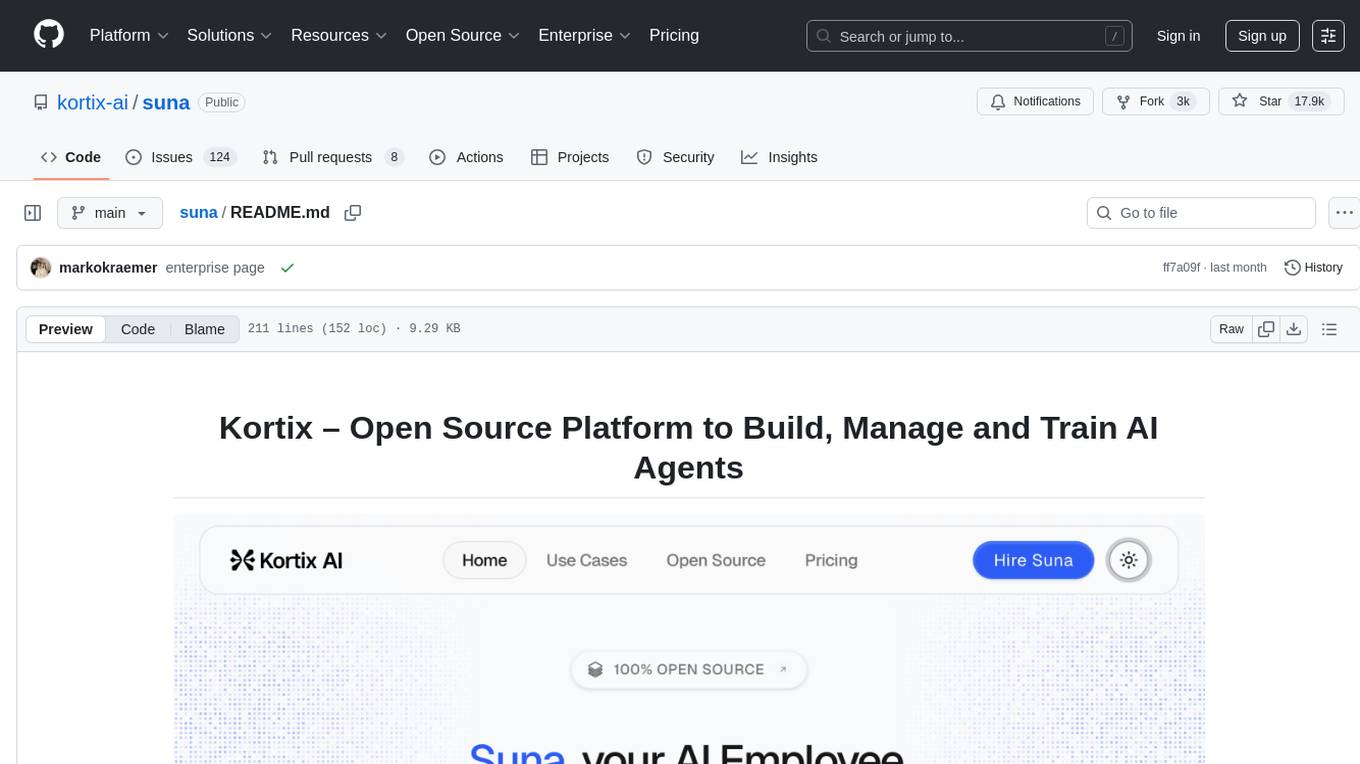
suna
Kortix is an open-source platform designed to build, manage, and train AI agents for various tasks. It allows users to create autonomous agents, from general-purpose assistants to specialized automation tools. The platform offers capabilities such as browser automation, file management, web intelligence, system operations, API integrations, and agent building tools. Users can create custom agents tailored to specific domains, workflows, or business needs, enabling tasks like research & analysis, browser automation, file & document management, data processing & analysis, and system administration.
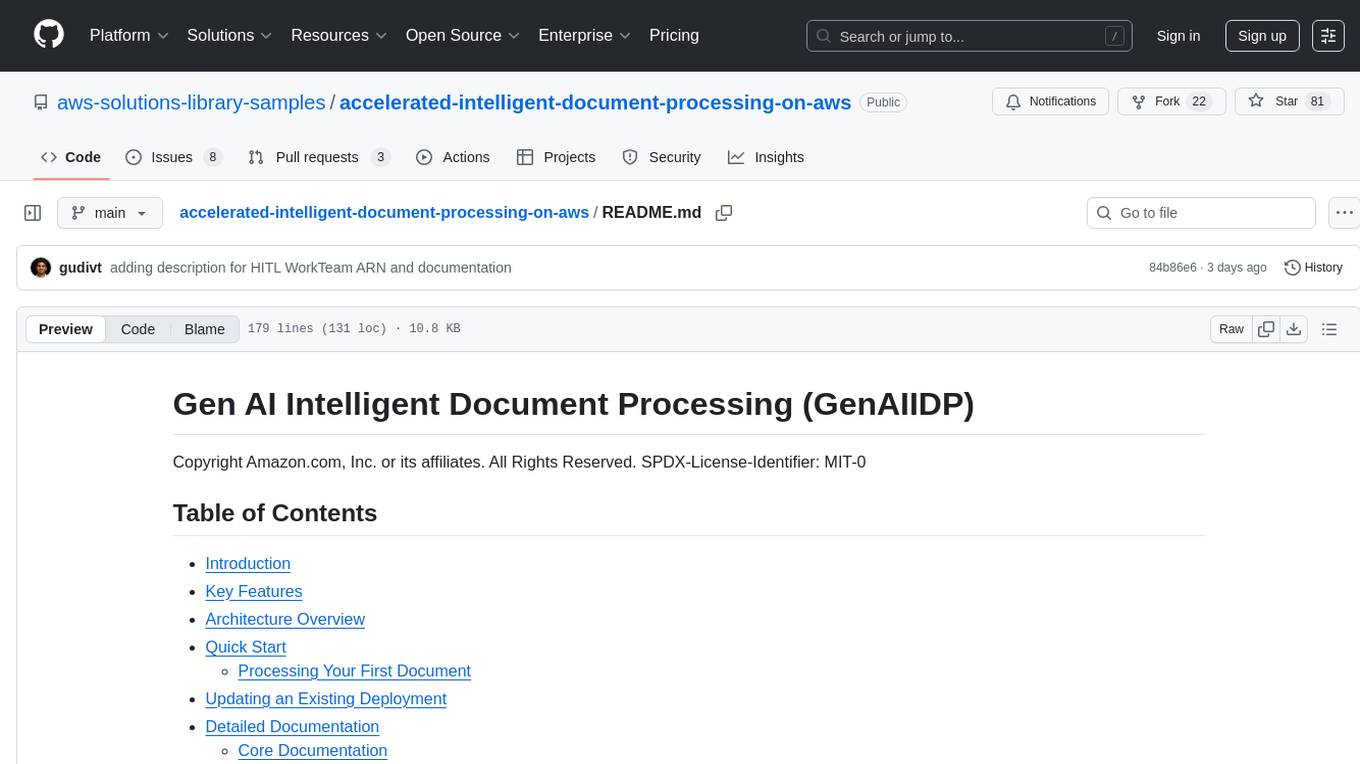
accelerated-intelligent-document-processing-on-aws
Accelerated Intelligent Document Processing on AWS is a scalable, serverless solution for automated document processing and information extraction using AWS services. It combines OCR capabilities with generative AI to convert unstructured documents into structured data at scale. The solution features a serverless architecture built on AWS technologies, modular processing patterns, advanced classification support, few-shot example support, custom business logic integration, high throughput processing, built-in resilience, cost optimization, comprehensive monitoring, web user interface, human-in-the-loop integration, AI-powered evaluation, extraction confidence assessment, and document knowledge base query. The architecture uses nested CloudFormation stacks to support multiple document processing patterns while maintaining common infrastructure for queueing, tracking, and monitoring.
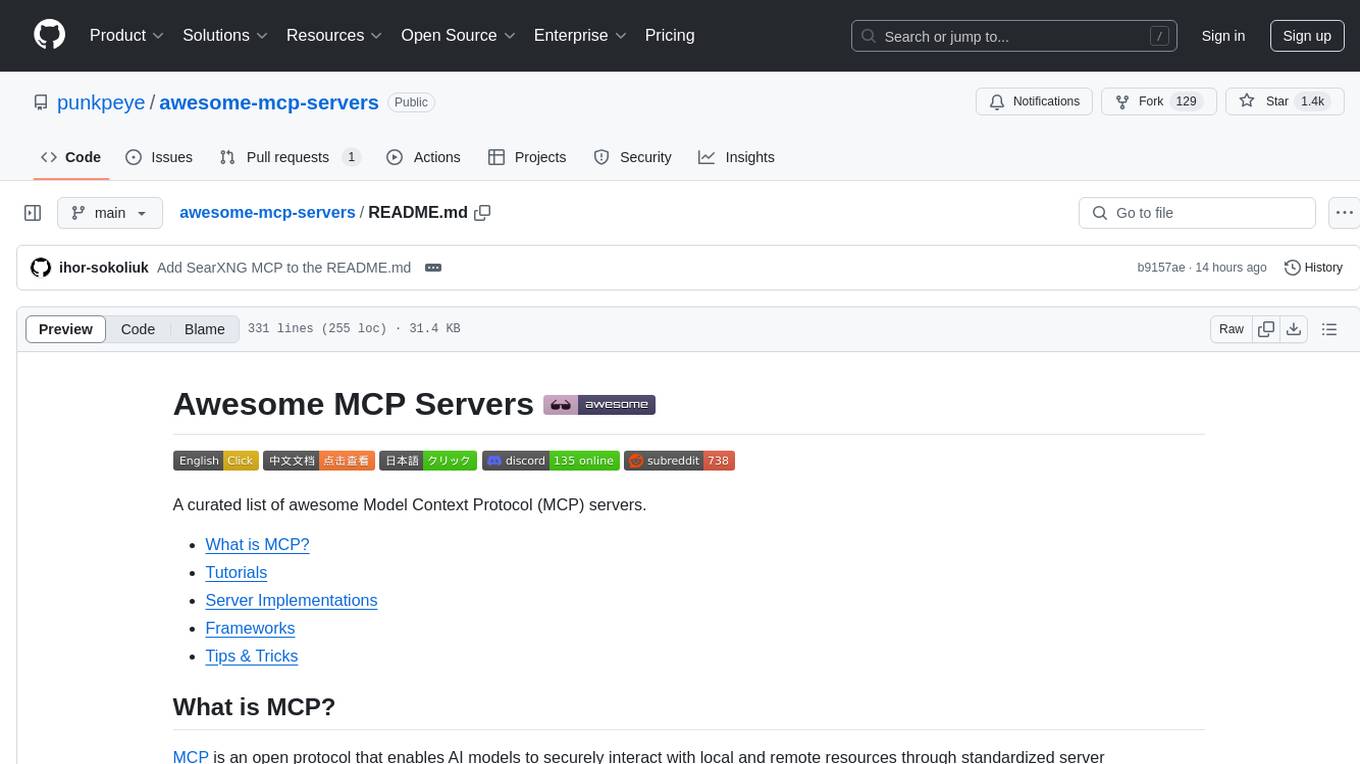
awesome-mcp-servers
Awesome MCP Servers is a curated list of Model Context Protocol (MCP) servers that enable AI models to securely interact with local and remote resources through standardized server implementations. The list includes production-ready and experimental servers that extend AI capabilities through file access, database connections, API integrations, and other contextual services.
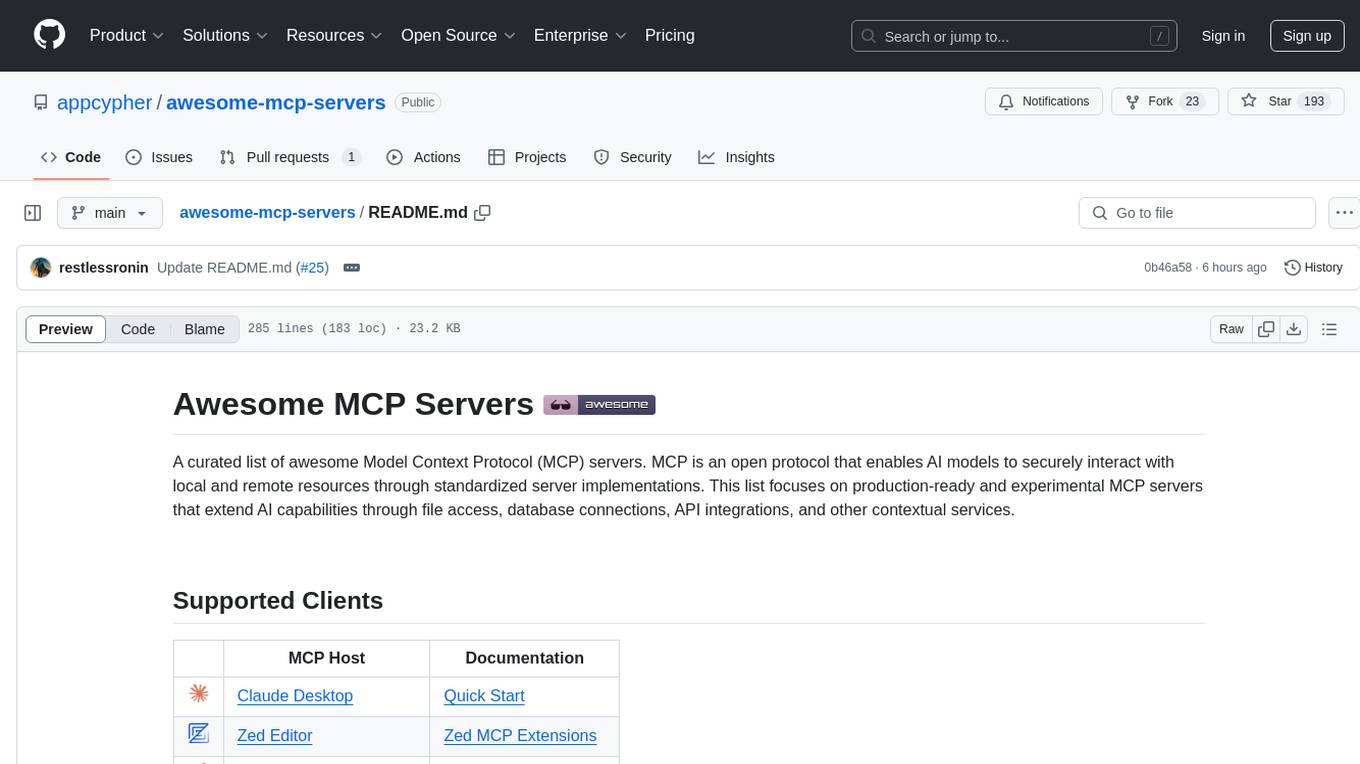
awesome-mcp-servers
A curated list of awesome Model Context Protocol (MCP) servers that enable AI models to securely interact with local and remote resources through standardized server implementations. The list focuses on production-ready and experimental servers extending AI capabilities through file access, database connections, API integrations, and other contextual services.
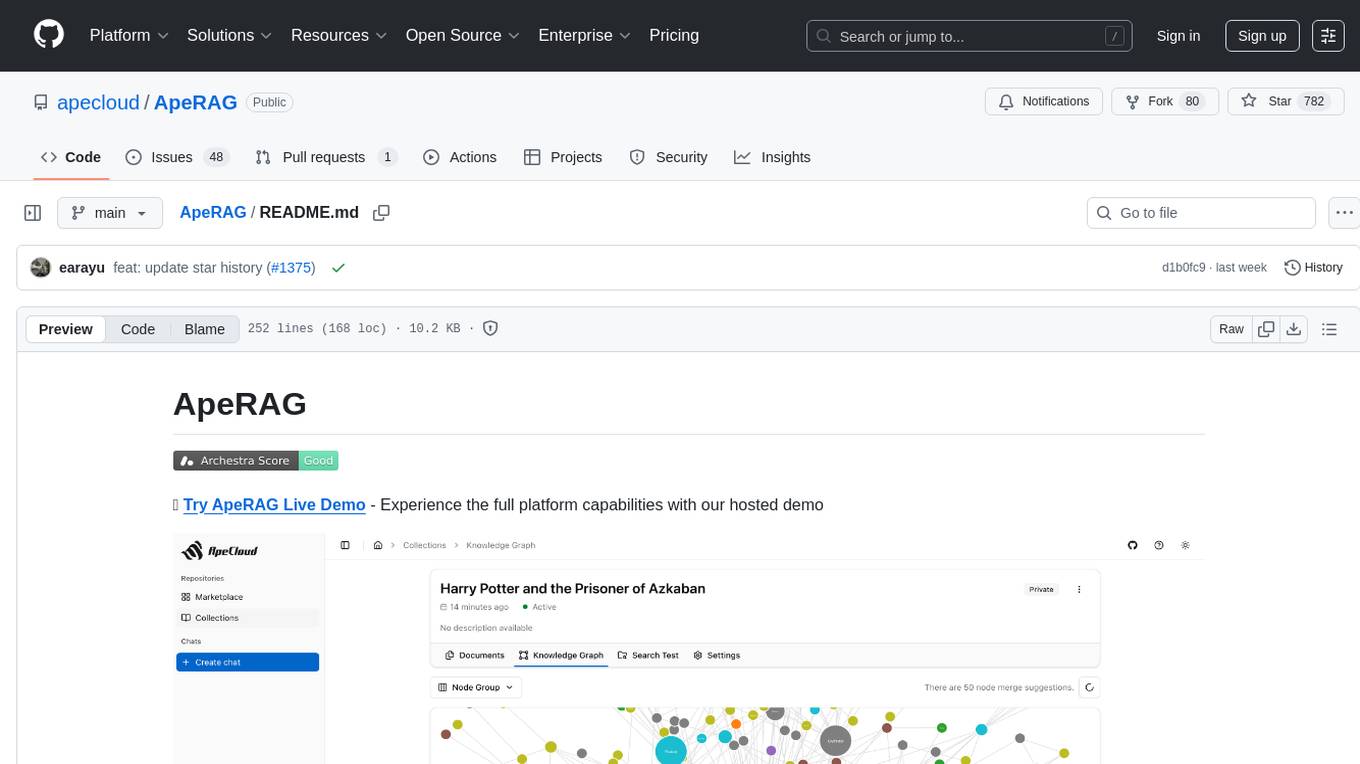
ApeRAG
ApeRAG is a production-ready platform for Retrieval-Augmented Generation (RAG) that combines Graph RAG, vector search, and full-text search with advanced AI agents. It is ideal for building Knowledge Graphs, Context Engineering, and deploying intelligent AI agents for autonomous search and reasoning across knowledge bases. The platform offers features like advanced index types, intelligent AI agents with MCP support, enhanced Graph RAG with entity normalization, multimodal processing, hybrid retrieval engine, MinerU integration for document parsing, production-grade deployment with Kubernetes, enterprise management features, MCP integration, and developer-friendly tools for customization and contribution.
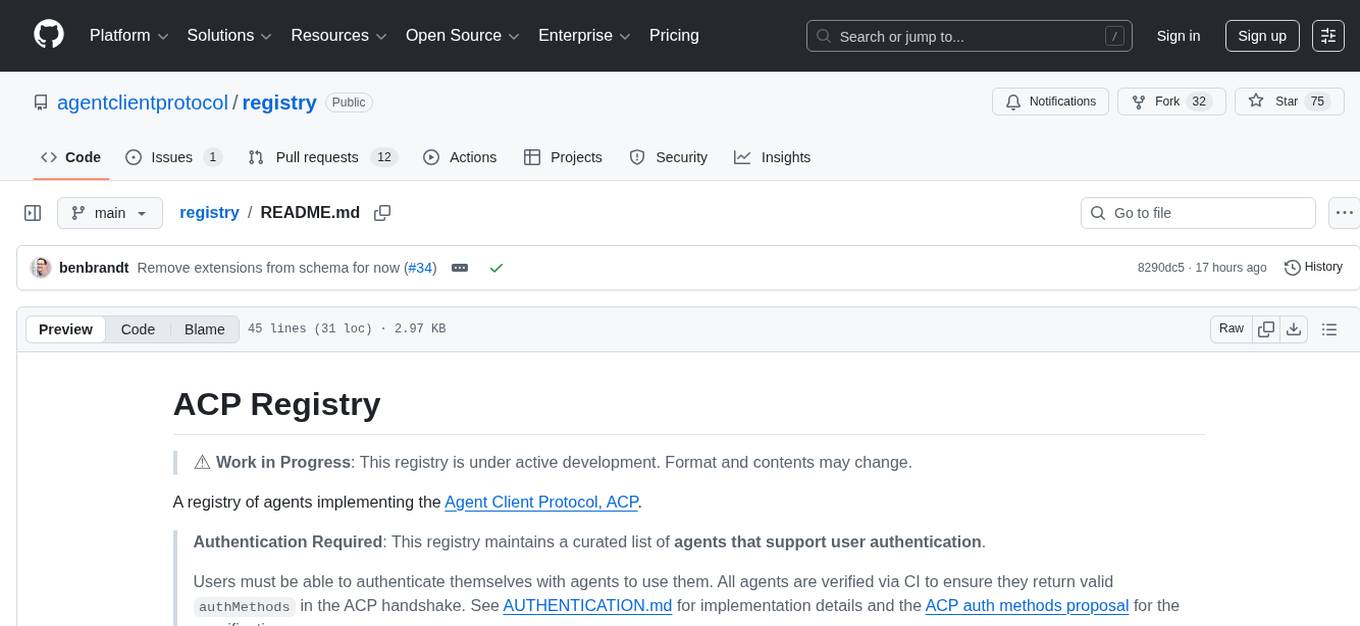
registry
ACP Registry is a curated list of agents and extensions implementing the Agent Client Protocol. It focuses on agents that support user authentication and ensures agents return valid `authMethods` in the ACP handshake. The registry includes various coding assistants and CLI tools from industry leaders like Google, OpenAI, and Alibaba. Users can fetch the registry index from the provided URL and contribute to the registry following the guidelines in CONTRIBUTING.md. The registry is licensed under the Apache License 2.0.
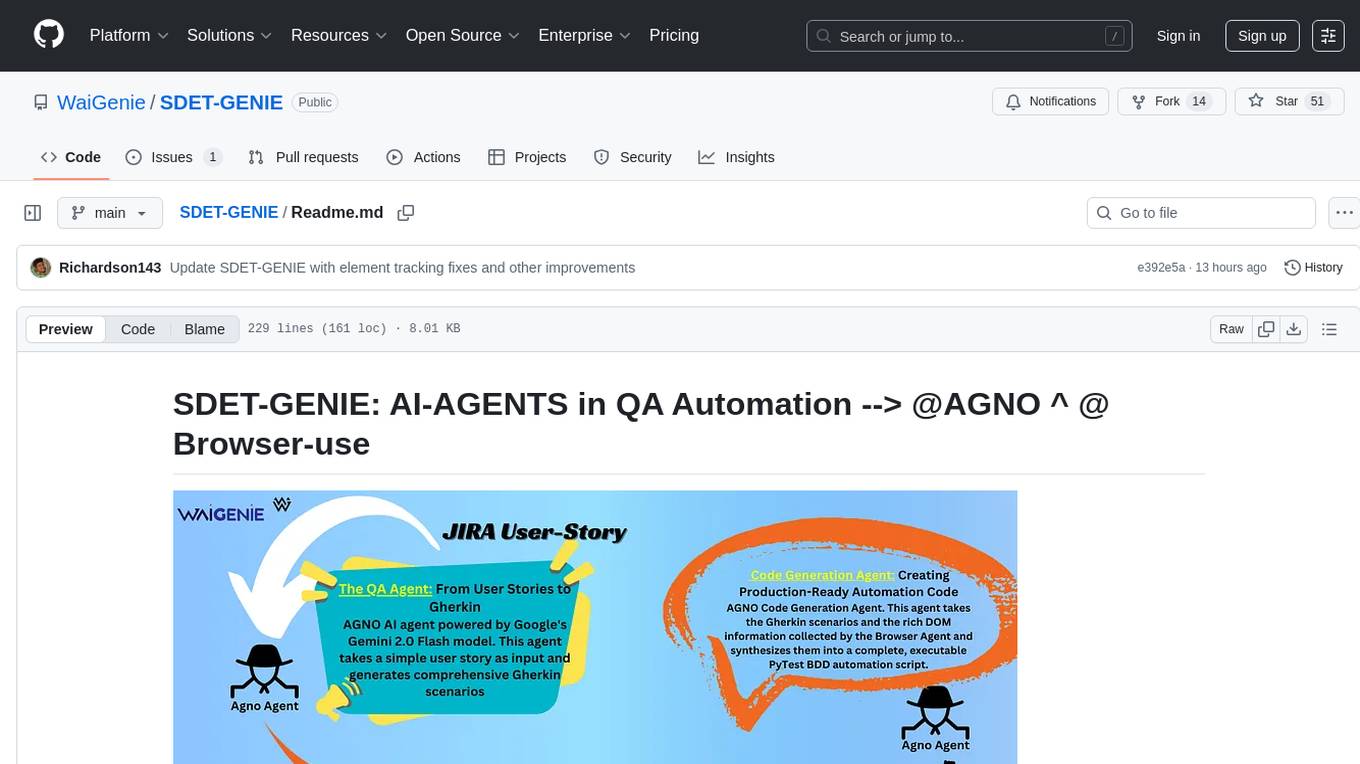
SDET-GENIE
SDET-GENIE is a cutting-edge, AI-powered Quality Assurance (QA) automation framework that revolutionizes the software testing process. Leveraging a suite of specialized AI agents, SDET-GENIE transforms rough user stories into comprehensive, executable test automation code through a seamless end-to-end process. The framework integrates five powerful AI agents working in sequence: User Story Enhancement Agent, Manual Test Case Agent, Gherkin Scenario Agent, Browser Agent, and Code Generation Agent. It supports multiple testing frameworks and provides advanced browser automation capabilities with AI features.
For similar tasks

mcp-for-security
MCP for Security is a repository that contains Model Context Protocol (MCP) server implementations for various security testing tools, making them accessible through a standardized interface. It aims to provide automated threat detection and reduce human latency in cybersecurity by combining artificial intelligence and security tools. Users can access a variety of tools for subdomain enumeration, reconnaissance, vulnerability scanning, web crawling, HTTP security analysis, mobile application security testing, network scanning, SSL/TLS configuration analysis, DNS brute-forcing, HTTP request smuggling detection, SQL injection testing, historical URL retrieval, and WordPress vulnerability scanning. The repository encourages collaboration and rapid evolution through open-source projects.
For similar jobs

ciso-assistant-community
CISO Assistant is a tool that helps organizations manage their cybersecurity posture and compliance. It provides a centralized platform for managing security controls, threats, and risks. CISO Assistant also includes a library of pre-built frameworks and tools to help organizations quickly and easily implement best practices.
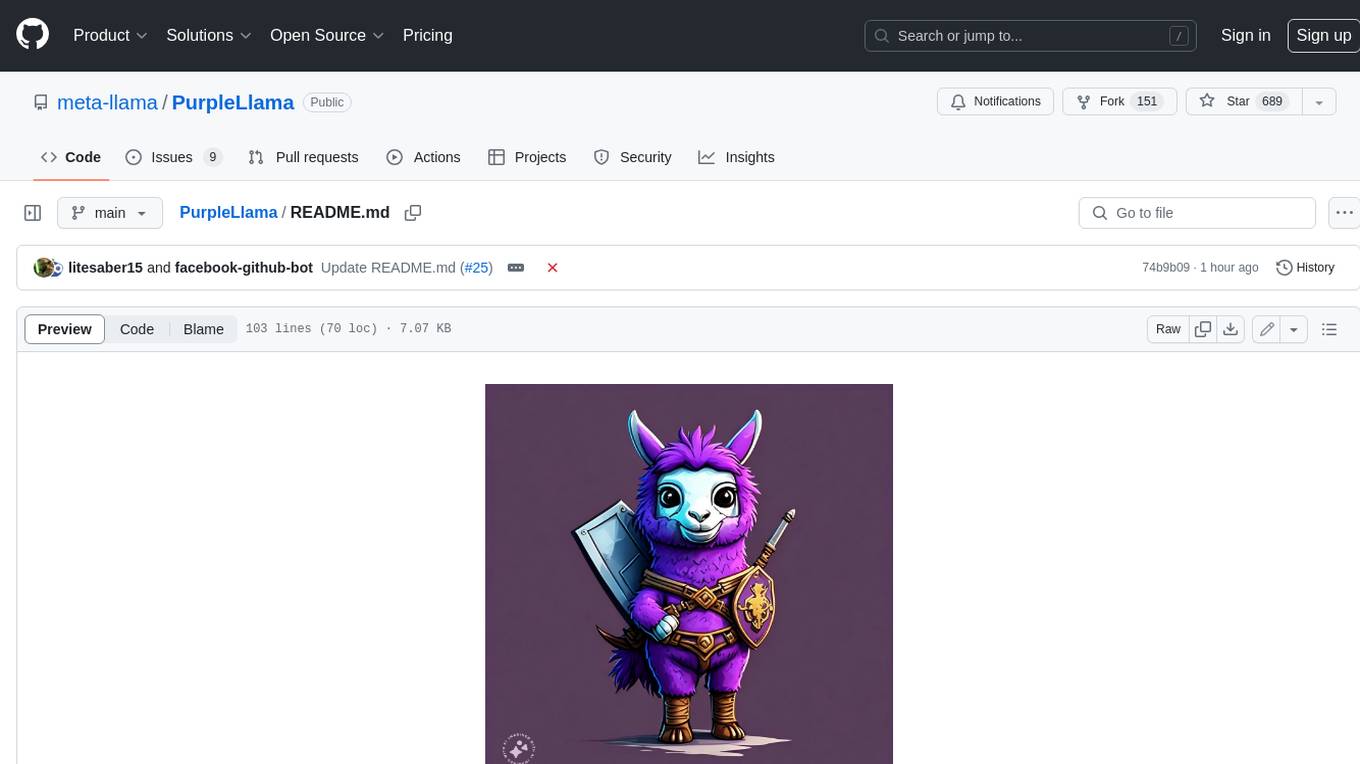
PurpleLlama
Purple Llama is an umbrella project that aims to provide tools and evaluations to support responsible development and usage of generative AI models. It encompasses components for cybersecurity and input/output safeguards, with plans to expand in the future. The project emphasizes a collaborative approach, borrowing the concept of purple teaming from cybersecurity, to address potential risks and challenges posed by generative AI. Components within Purple Llama are licensed permissively to foster community collaboration and standardize the development of trust and safety tools for generative AI.
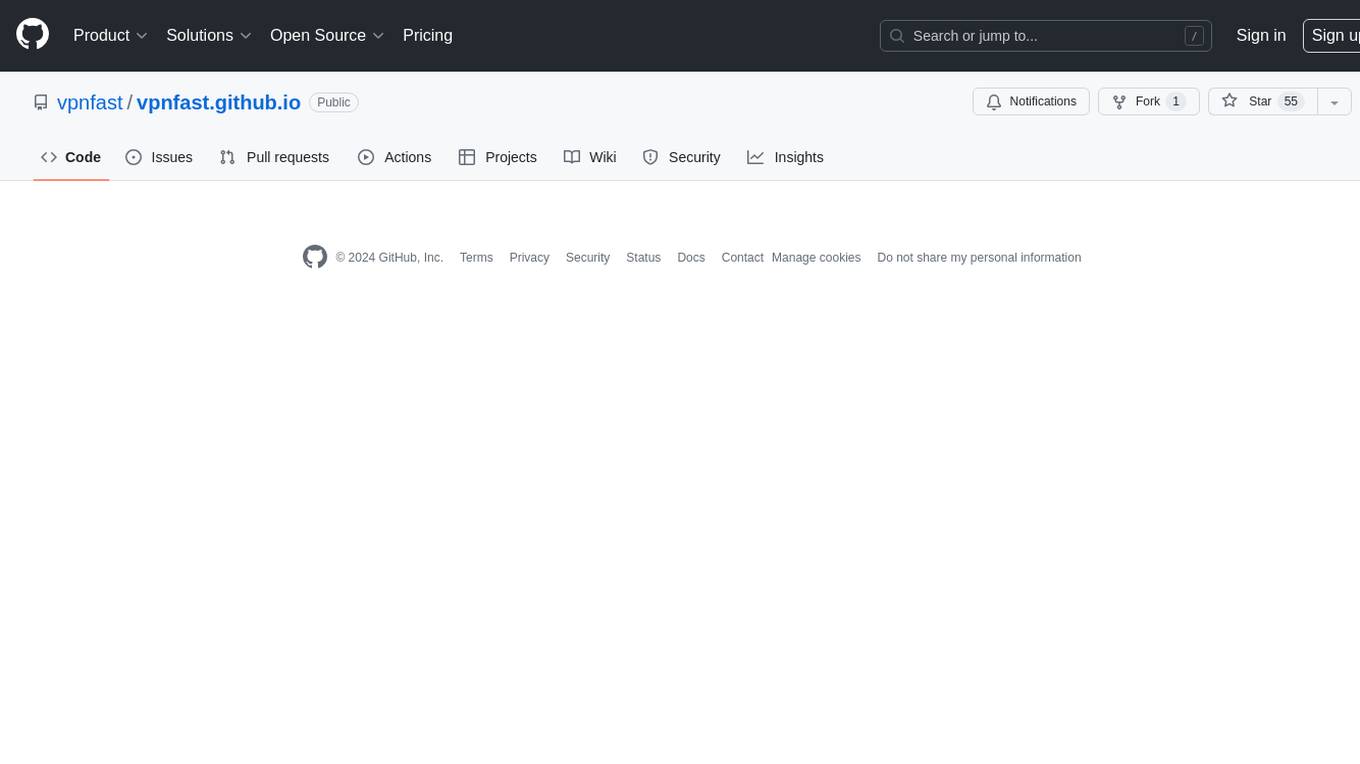
vpnfast.github.io
VPNFast is a lightweight and fast VPN service provider that offers secure and private internet access. With VPNFast, users can protect their online privacy, bypass geo-restrictions, and secure their internet connection from hackers and snoopers. The service provides high-speed servers in multiple locations worldwide, ensuring a reliable and seamless VPN experience for users. VPNFast is easy to use, with a user-friendly interface and simple setup process. Whether you're browsing the web, streaming content, or accessing sensitive information, VPNFast helps you stay safe and anonymous online.
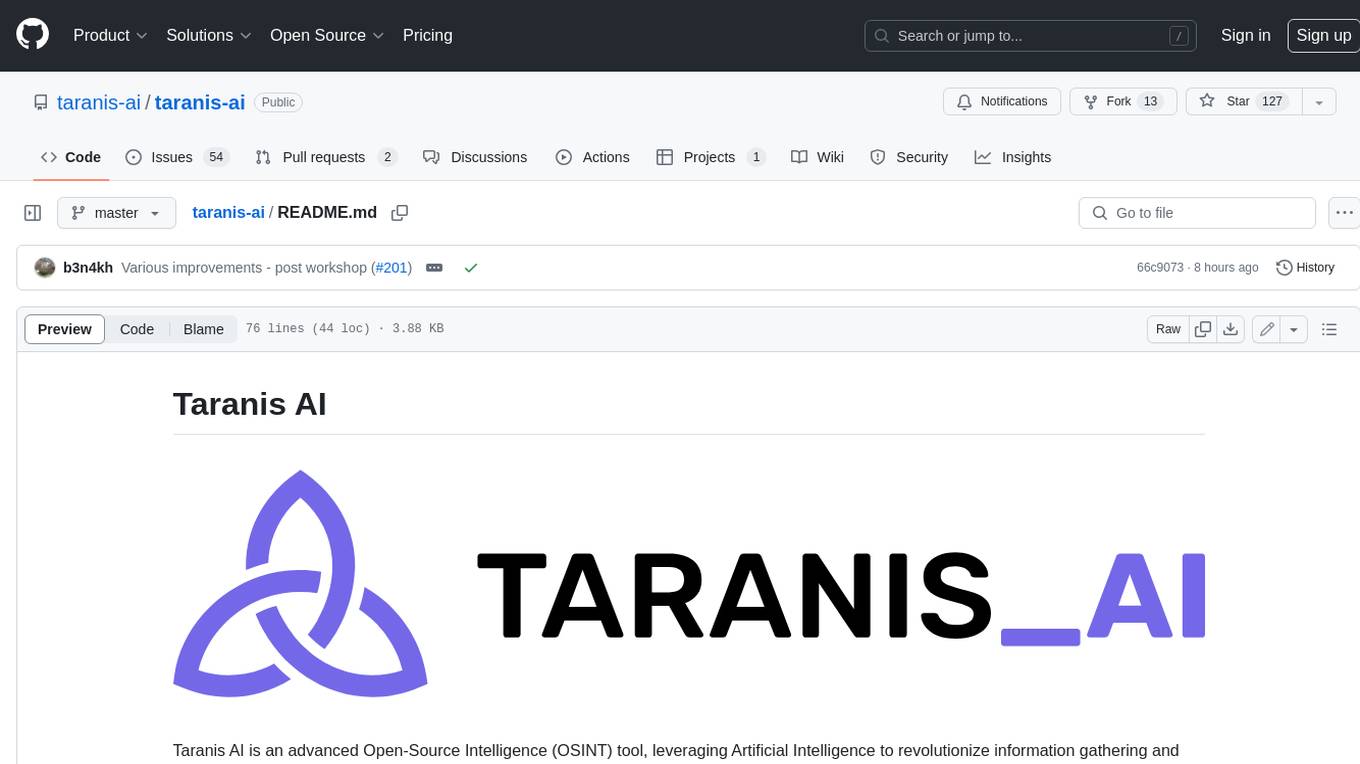
taranis-ai
Taranis AI is an advanced Open-Source Intelligence (OSINT) tool that leverages Artificial Intelligence to revolutionize information gathering and situational analysis. It navigates through diverse data sources like websites to collect unstructured news articles, utilizing Natural Language Processing and Artificial Intelligence to enhance content quality. Analysts then refine these AI-augmented articles into structured reports that serve as the foundation for deliverables such as PDF files, which are ultimately published.
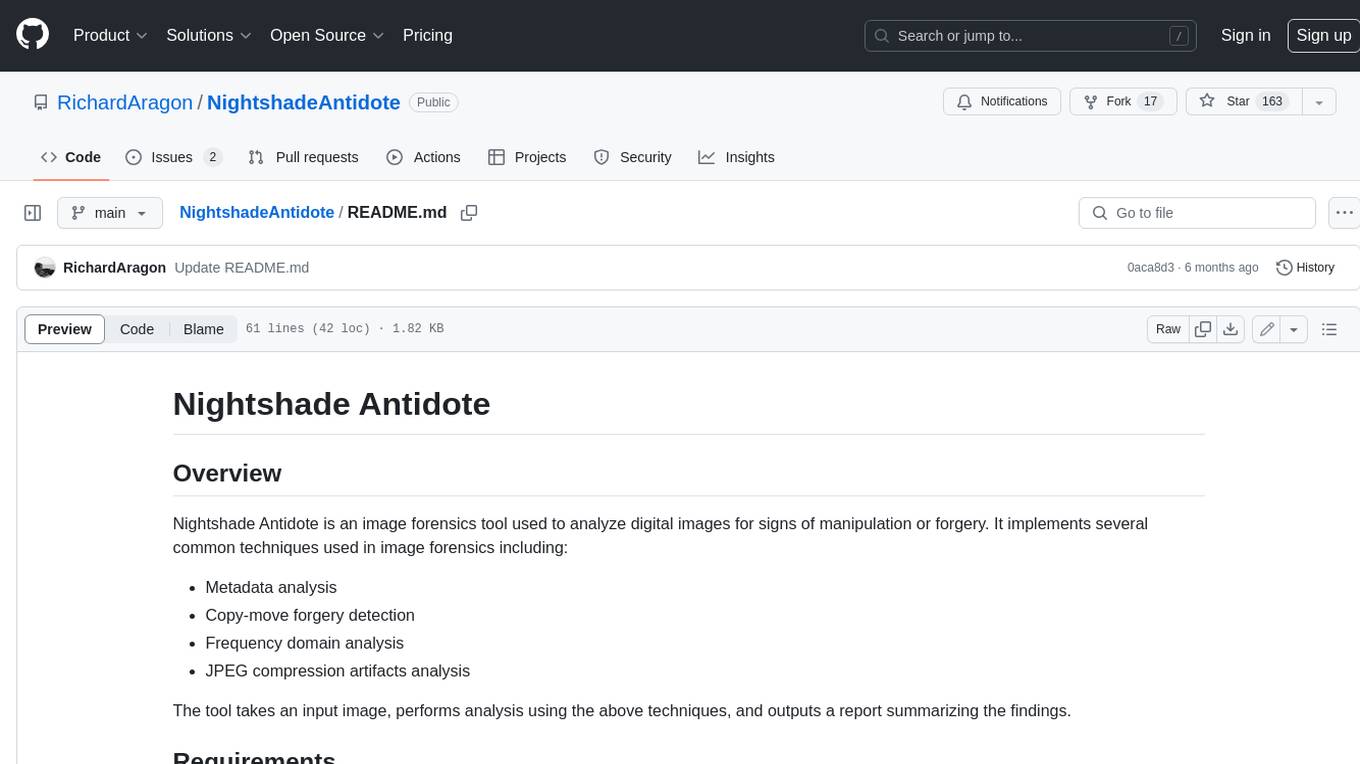
NightshadeAntidote
Nightshade Antidote is an image forensics tool used to analyze digital images for signs of manipulation or forgery. It implements several common techniques used in image forensics including metadata analysis, copy-move forgery detection, frequency domain analysis, and JPEG compression artifacts analysis. The tool takes an input image, performs analysis using the above techniques, and outputs a report summarizing the findings.
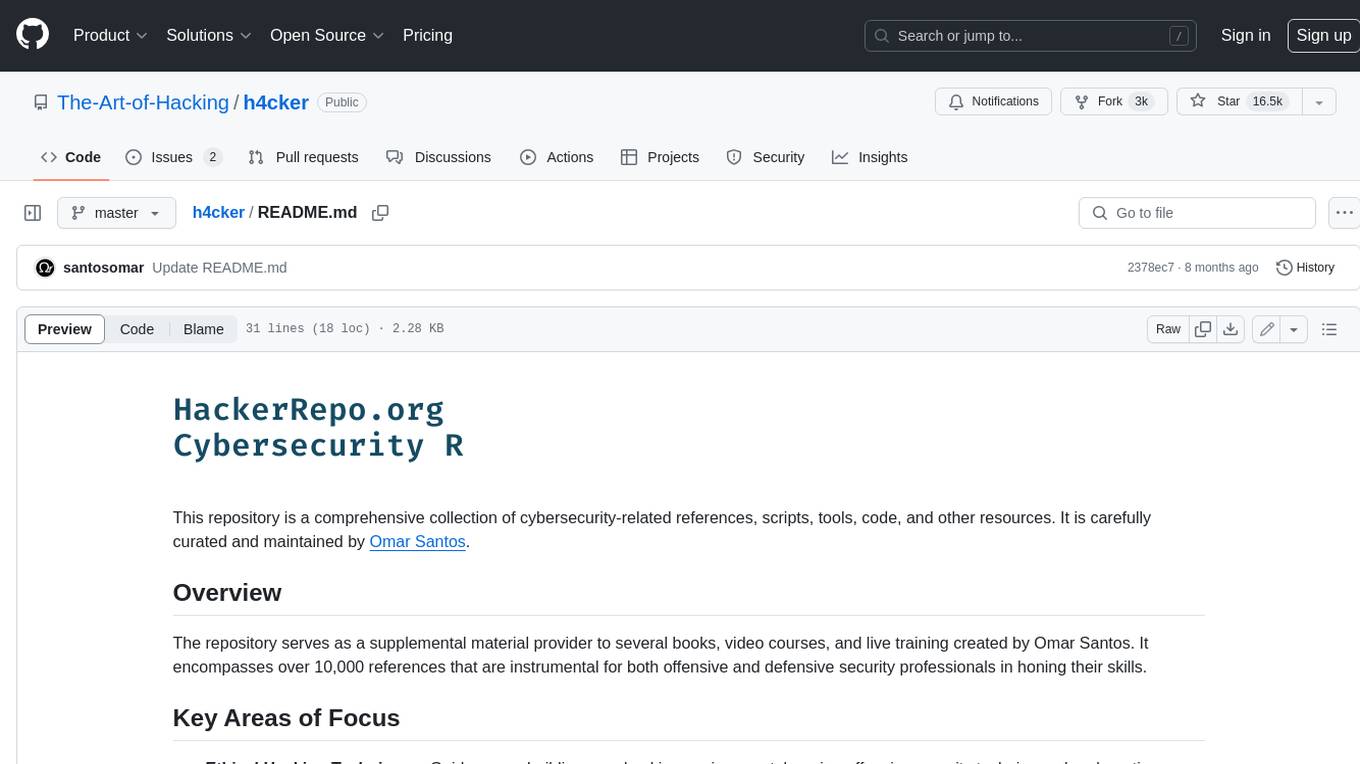
h4cker
This repository is a comprehensive collection of cybersecurity-related references, scripts, tools, code, and other resources. It is carefully curated and maintained by Omar Santos. The repository serves as a supplemental material provider to several books, video courses, and live training created by Omar Santos. It encompasses over 10,000 references that are instrumental for both offensive and defensive security professionals in honing their skills.
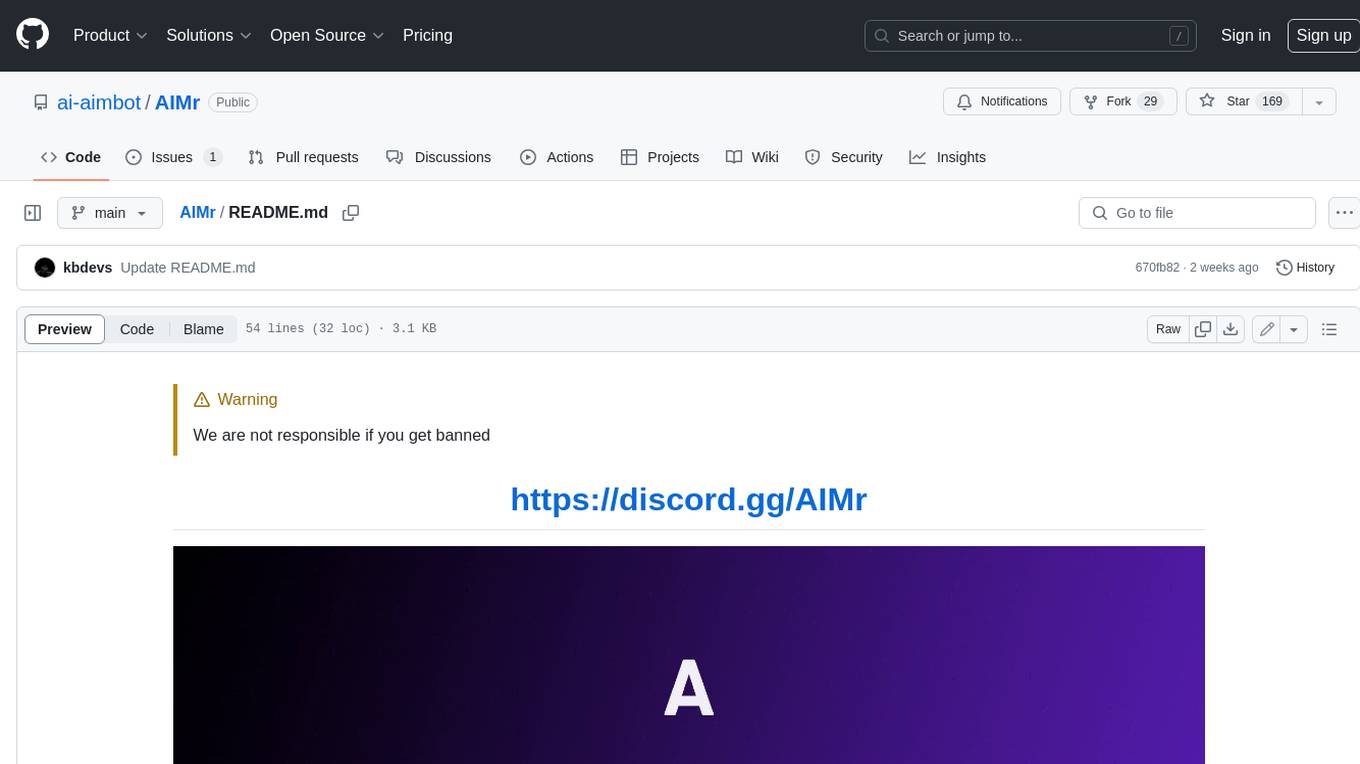
AIMr
AIMr is an AI aimbot tool written in Python that leverages modern technologies to achieve an undetected system with a pleasing appearance. It works on any game that uses human-shaped models. To optimize its performance, users should build OpenCV with CUDA. For Valorant, additional perks in the Discord and an Arduino Leonardo R3 are required.
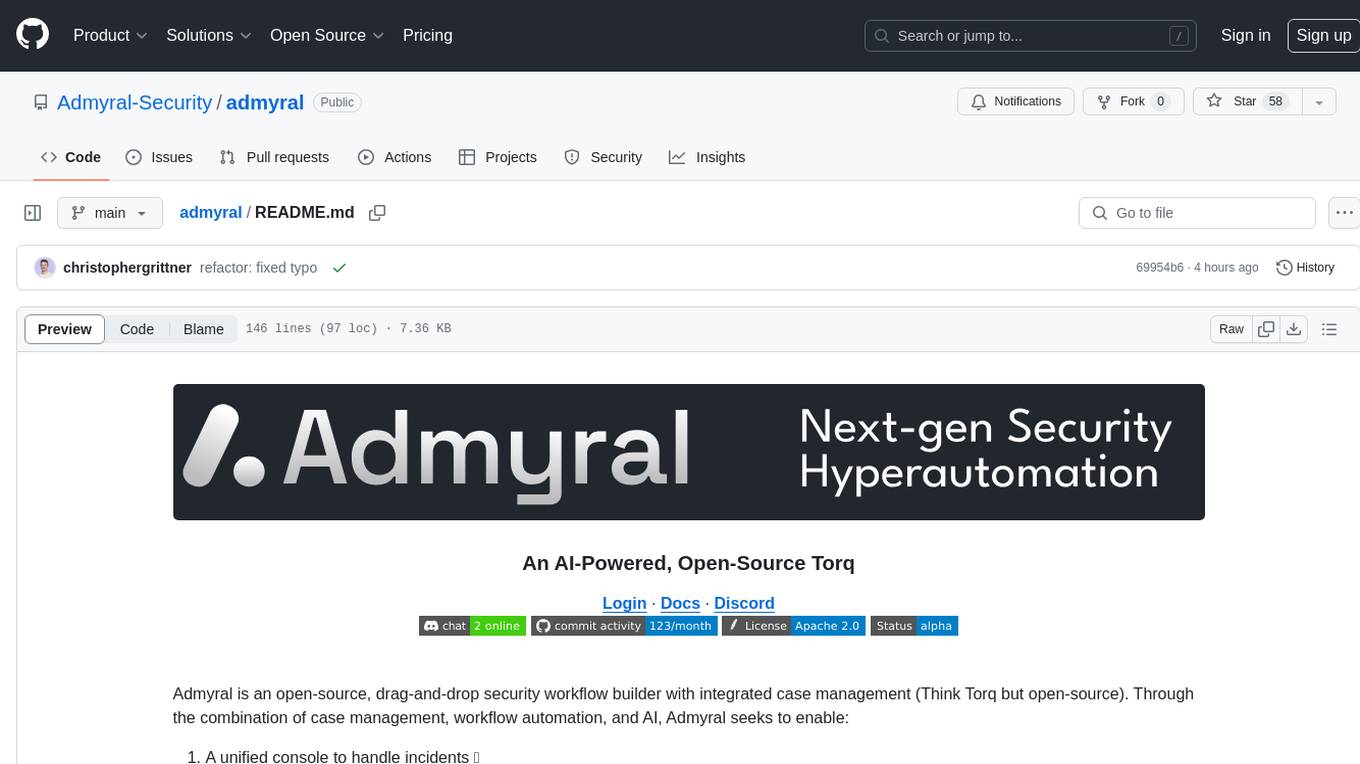
admyral
Admyral is an open-source Cybersecurity Automation & Investigation Assistant that provides a unified console for investigations and incident handling, workflow automation creation, automatic alert investigation, and next step suggestions for analysts. It aims to tackle alert fatigue and automate security workflows effectively by offering features like workflow actions, AI actions, case management, alert handling, and more. Admyral combines security automation and case management to streamline incident response processes and improve overall security posture. The tool is open-source, transparent, and community-driven, allowing users to self-host, contribute, and collaborate on integrations and features.


